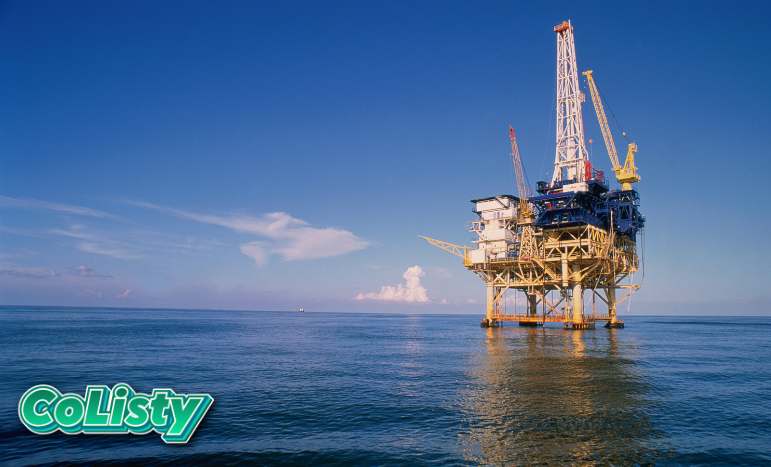The Role of an Offshore Drilling Foreman

The Role of an Offshore Drilling Foreman
Offshore drilling is a pivotal industry in the global energy sector. At the heart of this operation lies the Foreman, a vital role ensuring the seamless execution of drilling activities. This blog delves into the responsibilities, qualifications, skills, certifications, salary expectations, and opportunities for aspiring Foremen in the offshore drilling industry.
Role and Job Details
The Offshore Drilling Foreman acts as a supervisor for drilling operations, ensuring the safety and efficiency of the crew and equipment. Often referred to as the “Drilling Supervisor,” the Foreman is responsible for overseeing all activities on the rig, from equipment maintenance to personnel management.
Key Responsibilities Include:
- Monitoring drilling operations to ensure safety protocols are followed.
- Managing the crew to optimize performance and minimize downtime.
- Collaborating with engineers to interpret drilling plans and make adjustments as necessary.
- Troubleshooting equipment issues and coordinating repairs.
- Ensuring compliance with environmental and safety regulations.
- Reporting daily operations to onshore managers and stakeholders.
The Foreman is essentially the on-site leader, maintaining a balance between operational efficiency and worker safety.
Required Education and Training
While a formal degree is not always mandatory, a background in petroleum engineering, mechanical engineering, or a related field is highly advantageous. Many Foremen begin their careers in entry-level positions, such as Roustabout or Derrickhand, gaining hands-on experience before progressing to supervisory roles.
Training Pathways Typically Include:
- On-the-job Training: Entry-level positions on rigs offer practical experience under the supervision of seasoned professionals.
- Apprenticeships: Some companies offer structured programs combining theoretical and practical training.
- Vocational Programs: Specialized courses in drilling operations, rig maintenance, and safety procedures.
Having a foundational understanding of geology, hydraulics, and machinery operation is essential.
Required Skills
To excel as an Offshore Drilling Foreman, individuals must possess a mix of technical expertise, leadership abilities, and interpersonal skills.
Technical Skills:
- Proficiency in operating drilling equipment and understanding its maintenance.
- Knowledge of drilling techniques and geophysical analysis.
Leadership:
- The ability to manage a diverse team under high-pressure conditions.
- Decision-making skills to address challenges promptly.
Safety Awareness:
- Deep understanding of offshore safety protocols and regulations.
- Capability to conduct risk assessments and implement preventative measures.
Communication:
- Clear communication with team members and onshore management.
- Proficiency in documenting and reporting operations.
Problem-solving:
- Ability to diagnose mechanical issues and implement solutions swiftly.
Internationally Recognized Certifications/Courses/Badges
- IWCF Well Control Certification (International Well Control Forum): A key certification validating knowledge of well control and safety practices.
- Offshore Survival and Emergency Training (BOSIET): Teaches essential survival skills for offshore environments.
- API Certifications: Provided by the American Petroleum Institute, these courses cover drilling equipment standards.
- NEBOSH Oil and Gas Certificate: Focuses on safety and risk management in the oil and gas sector.
- H2S Awareness Training: For handling environments with hydrogen sulfide gas risks.
These certifications enhance employability and demonstrate a commitment to industry standards.
Typical Salary Range
The salary for an Offshore Drilling Foreman varies depending on experience, location, and company.
- Entry-Level: $80,000 - $100,000 per year
- Mid-Level: $100,000 - $130,000 per year
- Experienced Foreman: $130,000 - $180,000 per year
Additional benefits often include rotational schedules (e.g., 14 days on/14 days off), housing allowances, and travel perks.
Regions in High Demand
- Middle East: Countries like Saudi Arabia, UAE, and Qatar are global hubs for oil and gas exploration.
- North America: Offshore drilling in the Gulf of Mexico remains a significant employer.
- West Africa: Nigeria and Angola lead oil production in this region.
- Asia-Pacific: Malaysia, Indonesia, and Australia have burgeoning offshore operations.
- North Sea: The UK and Norway host mature but active offshore fields.
Big Companies in the Domain
-
Schlumberger
Global leader in oilfield services and drilling operations.
Website -
Halliburton
Offers innovative technologies for energy exploration.
Website -
Transocean
Specializes in offshore drilling services.
Website -
Baker Hughes
Renowned for drilling technologies and oilfield services.
Website -
Noble Corporation
Operates offshore drilling rigs globally.
Website -
Maersk Drilling
A leader in drilling rig operations in challenging environments.
Website
Useful External Links
- IWCF Well Control Certification: IWCF
- Offshore Training Courses: OPITO Certification Programs
- Job Listings for Offshore Foremen: Rigzone Jobs
- Safety Training Resources: NEBOSH Oil and Gas Certificate
-
Categories
Everything You Need to Know About Becoming an Actuary and Thriving in the Field
Published on Thursday, 23 January 2025 -
Categories
Everything You Need to Know About Becoming a Budget Analyst and Thriving in the Field
Published on Thursday, 23 January 2025 -
Categories
The Role of a Construction Project Manager: Responsibilities, Skills, and Opportunities
Published on Thursday, 23 January 2025 -
Categories
A Comprehensive Guide to Becoming a Successful Curriculum Developer
Published on Thursday, 23 January 2025




Share